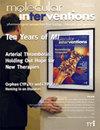To Be or Not to Be [Grateful]: Epistemologies of Belonging to a “Host-Home”
引用次数: 0
Abstract
I approach life writing as one of the most prominent forms of microhistory narratives which questions the grand narratives of history produced internationally and locally. Focusing on a transnational Iranian background woman writer, I argue that lived-experience narratives, despite their contradictions and the politics of publication, which has placed them into the category of “misery narratives”, are still epistemically value-laden and they need to be carefully and empathetically read. I draw on feminist phenomenology and use an intersectional methodology to study Dina Nayeri’s Refuge (2017) and her autobiographical article “The Ungrateful Refugee”, which mostly reflect on the experiences of border crossing and home making in relation to asylum seekers as marginalized identities. Focusing on multiple voices in this memoir, I show how asylum seekers coming from different social locations practise homemaking and create a sense of belonging to “home” in a host country that is not very hospitable towards them. I study the intersections of homeland, identity and politics, using life writing as an epistemology which sheds light on the questions of belonging.生存还是毁灭[感恩]:归属于“主-家”的认识论
我把生活写作作为微观历史叙事最突出的形式之一,它质疑国际和当地历史的宏大叙事。我以一位跨国背景的伊朗女作家为研究对象,认为她的亲身经历叙事虽然自相矛盾,也因出版的政治因素而被归入“悲惨叙事”的范畴,但在认知上仍然充满价值,需要仔细而有同理心地阅读。我借鉴了女权主义现象学,并使用交叉方法研究了迪娜·纳耶里的《避难所》(2017)和她的自传体文章《忘恩负义的难民》,这篇文章主要反映了与寻求庇护者作为边缘化身份相关的越境和造家经历。在这本回忆录中,我聚焦于多种声音,展示了来自不同社会地位的寻求庇护者如何在一个对他们不太友好的东道国实践家政,并创造一种归属感。我研究祖国、身份和政治的交叉点,用生活写作作为一种认识论,它揭示了归属问题。
本文章由计算机程序翻译,如有差异,请以英文原文为准。
求助全文
约1分钟内获得全文
求助全文

 求助内容:
求助内容: 应助结果提醒方式:
应助结果提醒方式:


